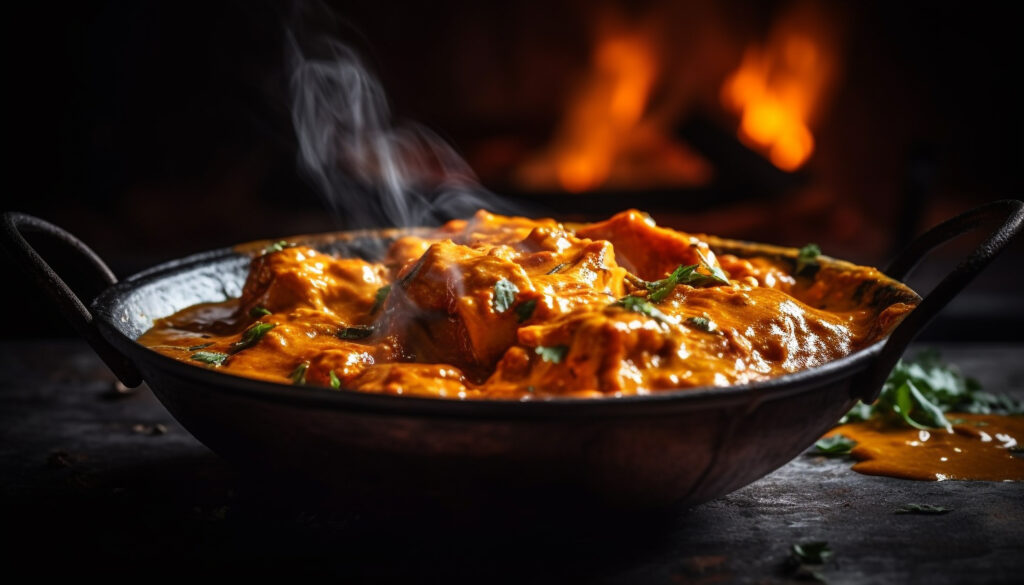
The origin of korma can be traced back to the Mughal era in the Indian subcontinent, particularly during the 16th to 19th centuries. The Mughals, who were of Central Asian descent, ruled over a vast empire that encompassed parts of present-day India, Pakistan, Bangladesh, and Afghanistan.
The term “korma” is derived from the Urdu word “qorma,” which means braised meat. It is believed that korma was originally brought to India by the Mughals, who were known for their sophisticated culinary traditions. They were influenced by Persian, Turkish, and Indian cooking styles, and their royal kitchens were renowned for their elaborate feasts and rich, flavorful dishes.
Korma is a cooking technique where meat, poultry, or vegetables are braised with yogurt, cream, or a mixture of nuts and seeds to create a rich and creamy sauce. Aromatic spices such as cardamom, cinnamon, cloves, and cumin are often used to flavor the dish, along with ingredients like onions, garlic, and ginger.
Over time, korma evolved into various regional variations across the Indian subcontinent, with each region adding its own unique twist to the dish. Today, korma remains a popular and beloved dish in Indian, Pakistani, and Afghan cuisines, enjoyed for its rich and complex flavors.
At The Tandoori Bliss originating from the opulent kitchens of the Indian subcontinent, Lamb/Beef Korma is a culinary delight that celebrates the rich flavors of Indian cuisine. Tender pieces of lamb or beef are cooked in a creamy and mildly spiced sauce with yogurt, cream, and nuts, creating a dish that is as luxurious as it is delicious. Whether enjoyed with fluffy basmati rice or warm naan bread, Lamb/Beef Korma pairs perfectly with a smooth and aromatic Indian chai tea or a crisp Indian Pale Ale (IPA), enhancing its creamy texture with a touch of warmth or hoppy bitterness. As a symbol of indulgence and culinary excellence, Lamb/Beef Korma continues to captivate diners with its exquisite flavors and decadent presentation, offering a taste of India’s rich culinary heritage with every mouthful.

